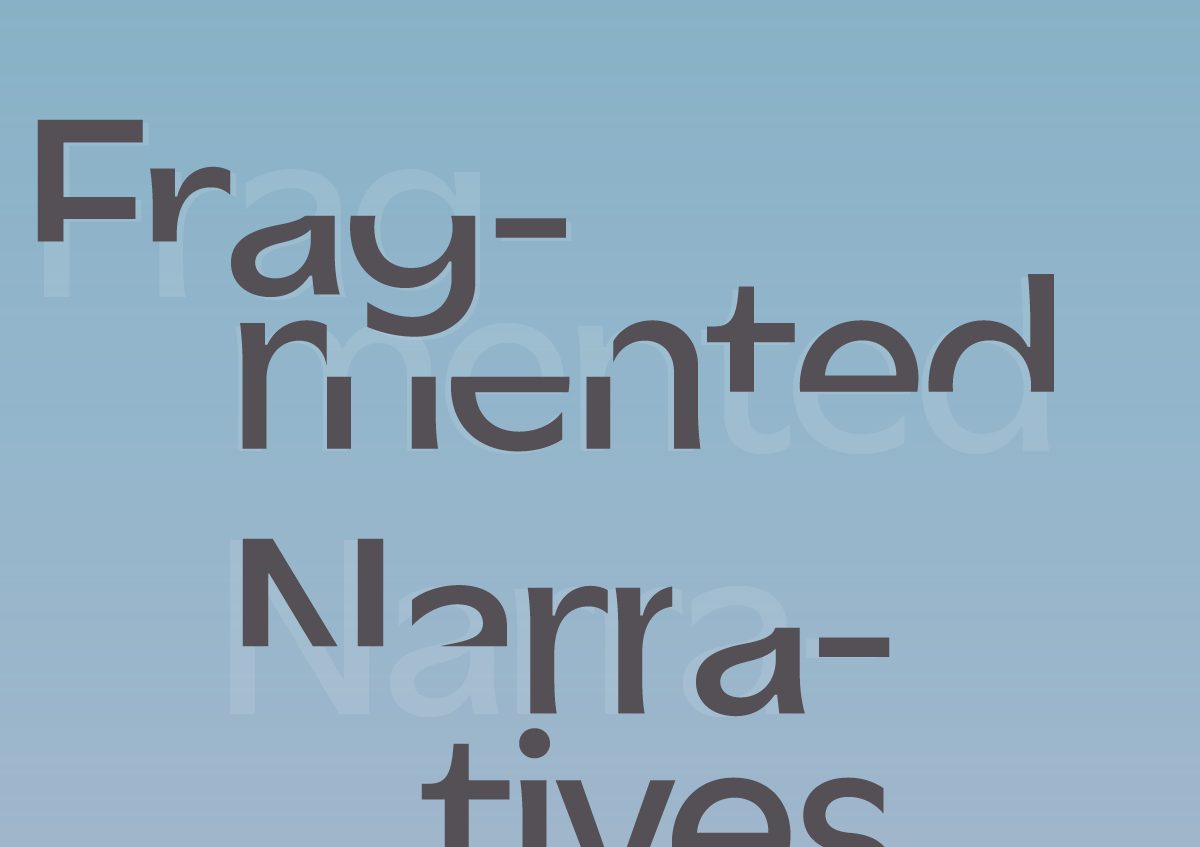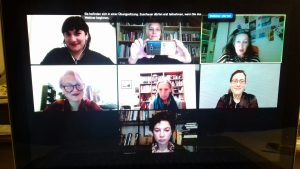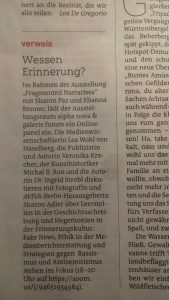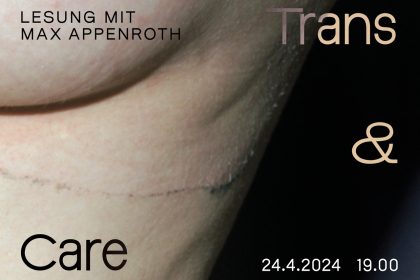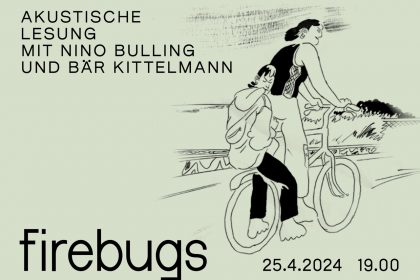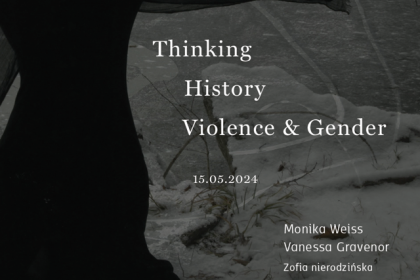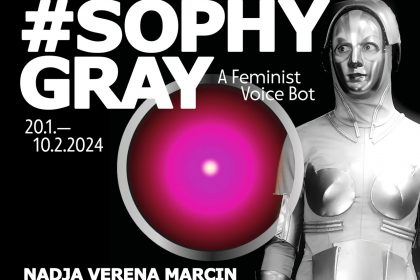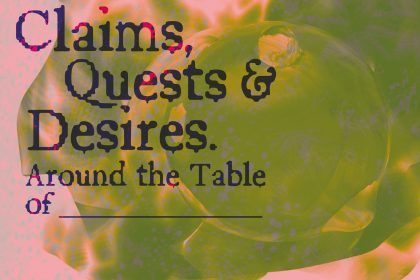Fragmented Narratives
online panel discussion
with
Dr. Lea Wohl von Haselberg (Media Scholar and Publicist)
Veronika Kracher (Publicist and Author)
Dr. Michal B. Ron (Art Historian and Researcher)
Dr. Ingrid Strobl (Author)
moderated by Sharon Adler (Publisher AVIVA-Berlin, photographer, Chairwoman of the Board of the Stiftung ZURÜCKGEBEN. Foundation for the Promotion of Jewish Women in Art and Science)
Who remembers and who is remembered? And who has hegemony over the culture of history and memory? Pointing towards the empty spaces in the writing of history serves as an opportunity for emancipatory positions and marginalized narratives to attain visibility and recognition. But what happens when right-wing and reactionary forces create their own “new truths?” How can one practice critique of the status quo of the hegemonic politics of history and media coverage without drifting into fake news and conspiracy myths? The goal of this panel is to enable an interdisciplinary engagement with the politics of memory as reflected in racism and anti-Semitism, both historically and in the present, with fake new, conspiracy myths, and the fragility of hegemonic truths. How can art, culture, science, and media work against these right-wing and reactionary currents and simultaneously recognize the illusion of veracity and truth.
Link to online panel: https://zoom.us/j/94651934984
Sharon Adler, born in 1962 in Berlin-West, grew up in Berlin, NRW, Holland, and Israel. In 2000 she founded the women’s online magazine AVIVA-Berlin. As a reaction to the assassination attempt in Halle on Yom Kippur, she created the interview + photo project “NOW FIRST RIGHT! STOP ANTISEMITISM”. Since 2013, she has also been volunteering as chairwoman of the board of the ZURÜCKGEBEN Foundation. Foundation for the Promotion of Jewish Women in Art and Science. In 2012 she was awarded the Berlin Women’s Prize.
www.aviva-berlin.de, www.pixelmeer.de und www.stiftung-zurueckgeben.de
Lea Wohl von Haselberg ist Film- und Medienwissenschaftlerin und forscht und schreibt zu deutsch-jüdischen Themen und Erinnerungskultur. Sie leitet an der Filmuniversität Babelsberg Konrad Wolf die Nachwuchsforschungsgruppe „Jüdischer Film“ und ist Mitherausgeberin der Zeitschrift Jalta. Positionen zur jüdischen Gegenwart. Forschungsschwerpunkte liegen auf der Repräsentation jüdischer Themen in bundesrepublikanischen Diskursen und (audiovisuellen) Erinnerungskulturen.
Veronika Kracher studied sociology and literature in Frankfurt and Mainz. Her main topics are the relationship between anti-Semitism and antifeminism, right-wing online strategies, the old right and, above all, the so-called Incel Community, which she has been working on for two years now. Veronika Kracher has published the book “Incels – History, Language and Ideology of an Online Cult” at Ventil.
Michal B. Ron, is a Berlin based art historian and theoretician, specialized in temporality in contemporary art and culture. She holds a PhD in Art History from the Free University of Berlin. In 2019 she published her dissertation, History in the Room of the Parrot. Ron writes essays, exhibition and book reviews for emerging art magazines, among others in the trilingual TOHU Magazine.
Ingrid Strobl, born in 1952 and raised in Innsbruck, studied in Vienna, editor with Emma, since 1986 freelance author with the thematic focus on Jewish Resistance and Saving Jewish Children. Publications, among others: Never say you go the last way. Women in armed resistance against fascism and German occupation, Fischer TB 1989. The fear came later. Jewish Women in Resistance in Europe 1938-1945, Fischer TB 1998, “Don’t tell anyone who you are”. The Rescue of Jewish Children in Belgium, WDR 1995, “Mir zeynen do”. The Ghetto Uprising and the Partisans of Bialystok WDR 1994.

